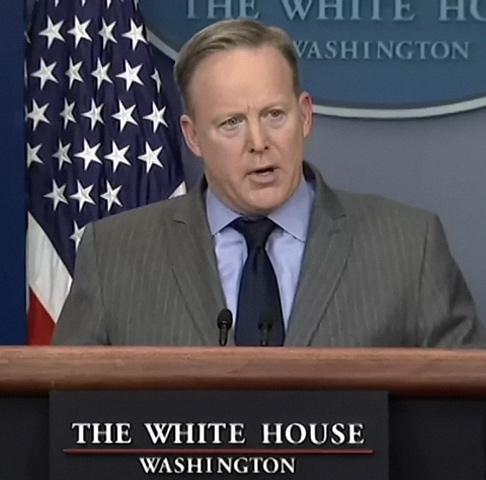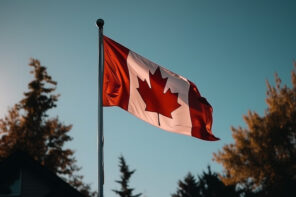By Jack Morris
While in office, President Obama made a habit of releasing a yearly list of books he felt were worth sharing. I enjoyed these lists, and tried to read as many of the suggestions as possible. It would appear, however, that the new President has only ever read two books: his biography, The Art of the Deal, and the Bible. Given his apparent lack of reading material, I would in turn offer a suggestion of my own: The Boy Who Cried Wolf.
Gideon Rachman makes a compelling and worrying case in his Financial Times article, “Truth, lies, and the Trump Administration” that we are entering a new era of politics.. In the first days of his presidency, Trump’s administration set an exceedingly low bar for honesty we can expect by blatantly lying about attendance at his inauguration.
While many reasonably found this spectacle to be almost comical, Rachman discusses the broader implications of the leader of the free world displaying this level of disregard for the truth. His concerns are well founded: Trump’s lies will not only have a corrosive effect on the United States’ international affairs; they will insidiously undermine almost every aspect of the American government.
To select just one quotation from Rachman’s article to convey the magnitude of these implications: “The Kremlin was unable to convincingly deny that Russian weaponry was used to shoot down Malaysian Airlines flight 17… But in any future struggle over the true version of events during an international crisis, the rest of the world may be now no more inclined to believe Mr. Trump’s America than Mr. Putin’s Russia.”
This is terrifying, and revealing as to why Russia was one of Mr. Trump’s biggest fans.
This is not to say that before Trump, the United States government was a paragon of transparency; that would be naive. However, there was formerly a threshold of informational sensitivity that could be associated with the probability of full disclosure. Discussions of topics such as Guantanamo Bay or ongoing military operations were clearly above this threshold and therefore came with a certain expectation of opacity.
This simply placed the onus on citizens and the media to be particularly engaged and vigilant in regards to these topics. But if all it takes is a poor inaugural turnout to make Trump ditch a policy of honesty, then this threshold is gone and the need for hyper-vigilance is constant. The issue with hyper-vigilance is that it is not sustainable; eventually some lies will be missed, and one can only hope that they concern something as mundane as crowd size.
All of these lies would be worrying if Trump were the same as any other president. But, as he has made abundantly clear, Trump is no normal president; he is a “hugely successful” businessman with assets all over the world. This fact alone should make clear that the bar for transparency is even higher for Trump, especially since he has refused to relinquish control of his assets in any meaningful way. His personal interests are not aligned with the American people and his self-prioritization is abundantly clear. In one of his more unsavory executive orders of the past few days, Trump decided to ban immigrants and refugees from several Muslim-majority countries.
Putting aside all the issues one could raise with this, I would draw your attention to the countries not on the list. Saudi Arabia, United Arab Emirates, Egypt; places with just as strong, if not a stronger, history of extremism, political instability, and anti-American sentiment. So, what distinguishes them from those countries that were included in the ban? They happen to have golf courses, hotels, and other businesses with the name “Trump” ostentatiously plastered across them.
Conflicts of interest have an insidious nature that will cast a shadow of doubt on every move Trump makes. When this shadow is further darkened by a seeming policy of dishonesty, any hope of perceiving the truth may be eclipsed completely.
While it is not proven beyond a reasonable doubt that self-interest was the motivation behind leaving these countries off the list, the world does not provide the same luxuries as the American justice system. Mr. Trump’s omission of countries in which he does business from his recent immigration freeze begs questions that both citizens and foreign leaders will answer for themselves in the absence of a convincing answer from Trump. The Trump Organization has entanglements in countries all over the world and we can only expect more situations where policy decisions seem to tilt in favor of those interests. Conflicts of interest have an insidious nature that will cast a shadow of doubt on every move Trump makes. When this shadow is further darkened by a seeming policy of dishonesty, any hope of perceiving the truth may be eclipsed completely.
At this point, however, I’m reluctant to place any more blame on Trump. It is becoming apparent that this is simply what we can expect from him. But if Trump is incapable of checking himself, we must shift our focus to those who can. Republicans are faced with an increasingly untenable position as Trump not only flouts American ideals, but conservative ones as well.
It is time for those that tout themselves as the successors of Lincoln (a claim subject to different controversies) to hold their President to the standards of Honest Abe. Until now, Republican leadership has been complicit in Trump’s lies and erraticism, but it is time for them to protect what little credibility the United States has left by acting as the first and strongest check against dishonesty coming out of the Trump administration.
There is no upside to a policy of dishonesty. The geopolitical implications of the United States losing its credibility are worrying enough, but anyone paying attention will realize geopolitics is only one of many things affected by an untrustworthy, unpredictable president. Economic instability, disenfranchised citizens, societal strife and legislative gridlock can all be expected if Trump continues to cry wolf. Trump promised to “make America great”. So far he seems far more intent on making it incredible.








